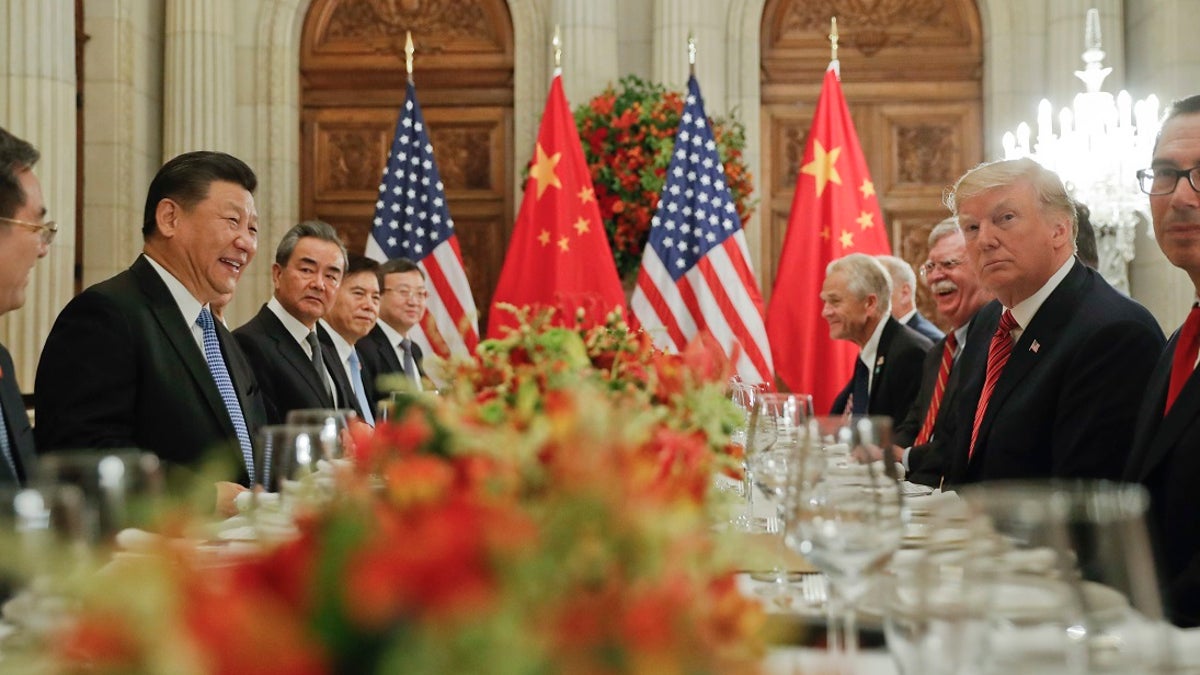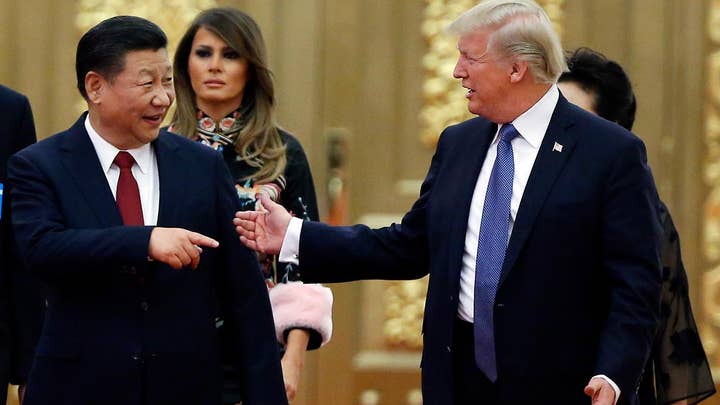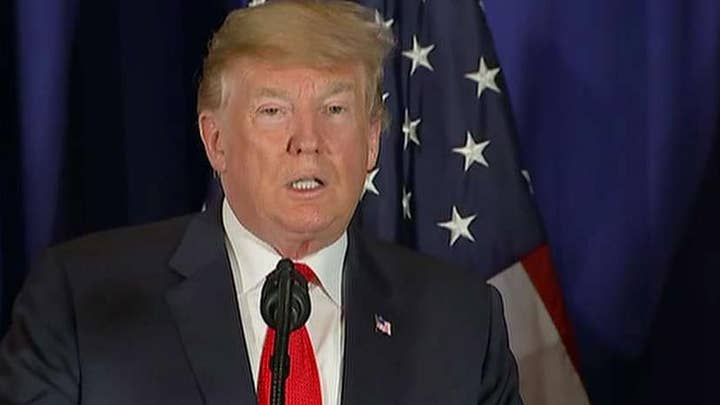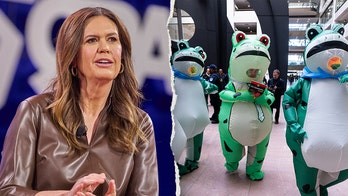
President Donald Trump meets with China's President Xi Jinping during their bilateral meeting at the G20 Summit, Saturday, in Buenos Aires. (Associated Press)
The U.S. and China have agreed to a 90-day truce in a bid to work out their trade differences. The news came Saturday following a dinner meeting between President Trump and Chinese leader Xi Jinping at the Group of 20 summit in Buenos Aires.
As part of the detente, Trump agreed to delay plans to raise tariffs on $200 billion in Chinese goods that would have taken effect Jan. 1. China agreed to buy a “substantial amount” of agricultural, energy and industrial products from the U.S. to reduce the trade deficit.
"It's an incredible deal," Trump told reporters aboard Air Force One, on his way back to Washington. "What I'll be doing is holding back on tariffs. China will be opening up, China will be getting rid of tariffs. China will be buying massive amounts of products from us."
"It's an incredible deal. What I'll be doing is holding back on tariffs. China will be opening up, China will be getting rid of tariffs. China will be buying massive amounts of products from us."
The temporary agreement will give both nations time to iron out their differences. If not, the $200 billion in planned tariffs will go into effect.
Trump has already imposed tariffs on $250 billion on Chinese products. In response, China slapped taxes on $110 billion in American goods.
The meeting came during Trump’s weekend trip to Argentina where he canceled a meeting with Russian President Vladimir Putin amid tensions between Russia and Ukraine. He also canceled a Saturday news conference following the death of former President George H.W. Bush.
"It's great the two sides took advantage of this opportunity to call a truce," said Andy Rothman, investment strategist at Matthews Asia. "The two sides appear to have had a major change of heart to move away from confrontation toward engagement. This changes the tone and direction of the bilateral conversation."
China also conceded to label fentanyl, the synthetic opioid cited in thousands of drug deaths, as a controlled substance and agreed to reconsider a takeover by U.S. chipmaker Qualcomm that it had previously blocked.
China nixed the proposed purchase of Dutch semiconductor manufacturer NXP by the chipmaker over antitrust concerns.
White House press secretary Sarah Sanders said China's decision to label the drug as a controlled substance means that "people selling fentanyl to the United States will be subject to China's maximum penalty under the law."
The U.S. has pressured China to take a tougher stance against the drug, which is 50 times more powerful than heroin. Most of the U.S. supply of the drug is made in China.
Washington has also accused Beijing of selling trade secrets and forcing American companies to hand over technology in exchange for access to Chinese markets.
The Associated Press contributed to this report.













































